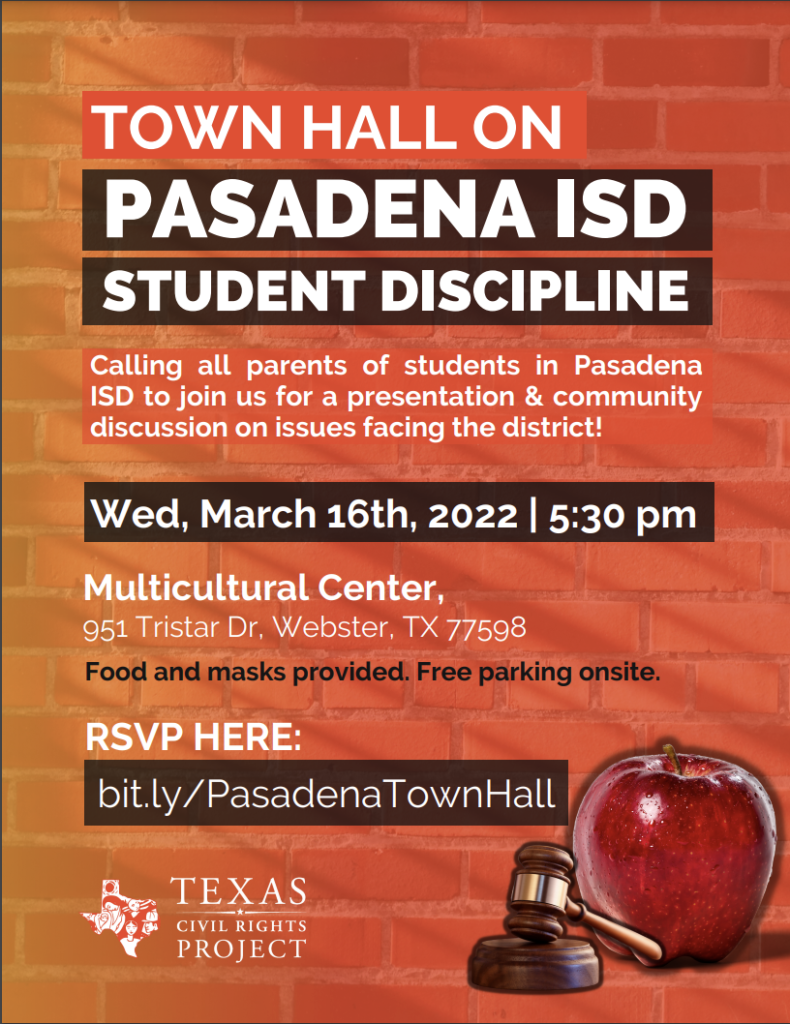After Houstonian George Floyd was murdered in the streets of Minneapolis in 2020 by former police officer Derek Chauvin, the national conversation on police reform reached a peak in coverage the country hadn’t seen in years. Floyd begging for his life in the nearly nine-minute video highlighted blatant injustices Black people are facing in the criminal legal system.
So in the 2020 election cycle, police reform became a regular talking point in federal and state campaigns, with many leaders on both sides of the aisle aiming to pass policies like the George Floyd Justice and Policing Act.
But after Republicans and Democrats in the United States Senate couldn’t compromise on qualified immunity, and with President Joe Biden shouting “fund the police” at his State of the Union speech earlier this month, police reform in any facet seems nonexistent.
At the state level, Texas Gov. Greg Abbott has continuously said he “backs the blue.” Still, he then supports policies like permitless carry which was denounced by police unions across the state for public safety concerns.
Nevertheless, according to reports, Texas continues to have one the highest incarceration rates in the nation, with Black and Hispanic Texans being the highest population in prisons.
Nonprofit organizations like the Texas Civil Rights Project are addressing criminal injustices in the state. More specifically, in public education, where statistics show significant disparities in exclusionary discipline, over-policing in schools, and how that affects students long term.
A recent investigation by TCRP researched Pasadena Independent School District metrics on suspensions, referral to alternative schools, physical restraints on campus, and police response to student misbehavior.
According to the report, PISD had one of the highest discipline rates among students despite being the 17th largest district in the state. In the 2018-2019 school year, PISD suspended, expelled, or sent to a disciplinary alternative education program 8,942 different students totaling 23,890 different disciplinary actions.
Moreover, PISD police department arrested more students than other larger districts including Dallas, Fort Worth, and Austin. And while Black students only make up 7.5 percent of the student body, they made up 19.4 percent of the total arrests made.
The Signal spoke with Travis Fife, Legal Fellow with the Texas Civil Rights Project’s Criminal Injustice Team, on the frightful numbers, disparities among Black students, and solutions for the future.
One specific issue Fife said he recognized in the investigation is the differing school employees’ response to Black, Hispanic, and Caucasian children who “misbehave.”
“An obvious sociological fact to keep in mind is the way that young Black boys and Black girls’ emotions, behavior, and excitement, and sometimes aggressiveness is sensationalized,” Fife said. “When you think about how we understand who is and isn’t a danger this is a perfect example of how that manifests and damages the treatment of kids. There are systems in place that almost explicitly authorize those types of bias assessments.”
Like the criminal legal system, public education also highlights disparities among Black and Hispanic students compared to Caucasian students. Similar to how Black defendants get harsher sentences than their white counterparts, according to the investigation, the district’s reliance on police, punishment, and physical force led to 15.3 percent of Black students being referred to the disciplinary alternative education programs.
“When kids misbehave or behave in a way that we don’t want them to, are we giving them the tools they need to fix the behavior at its root or are we just slapping on a band-aid solution by sending them to the alternative school so we don’t have to deal with it?” he said. “It’s that investment in support in educational services, for students, for teachers, and families who are struggling that is really really lacking.”
Another troubling statistics TCRP found in the investigation are the number of “restraints” reported by the district. PISD reported 663 instances of school employees using physical restraint against students over the past three years, and Black students more specifically made up 40 percent of the restraints.
The Texas Education Code defines a restraint as the use of physical force to significantly restrict the free movement of all or a portion of a student’s body.
Fife also said TCRP has spoken with families in the district who emphasized the lack of grace and empathy for students of color. As a result, TCRP sent a letter to the district in February highlighting the statistics and requested a meeting with Pasadena School Board members.
“In the very intimate relationship between student and teacher and the historical context of Pasadena, I think representation both for Latino and Black students is really important,” Fife said. “Shifting money from security and monitoring from the police department to special education services, mental health programs and more would make students and family feel significantly more supported.”
For context, Fife is referring to the lawsuit between the federal government and Pasadena after the city was sued in 2013 for violating the Voting Rights Act after local officials redistricting maps specifically diluted Hispanic voters. On another note, Pasadena was one of the states headquarters for the Ku Klux Klan in the 1980’s.
Undoubtedly, public safety and what that looks like has to be an open conversation between the community and leaders in positions of power. So TCRP is hosting a town hall on Wednesday March 16 at 5:30 p.m. at the Multicultural Center in Webster, Texas to hold a space for families and students in the district to discuss their experiences.

After numerous attempts, the Signal has yet to hear back from Pasadena ISD.
Kennedy is a recent graduate of the University of St.Thomas in Houston where she served as Editor-in-Chief of the Celt Independent. Kennedy brings her experience of writing about social justice issues to the Texas Signal where she serves as our Political Reporter. She does everything from covering crime beats, Texas politics, and community activism. Kennedy is a passionate reporter, avid reader, coffee enthusiast, and loves to travel.





